
Brendan Dawes - The Art of Cybersecurity
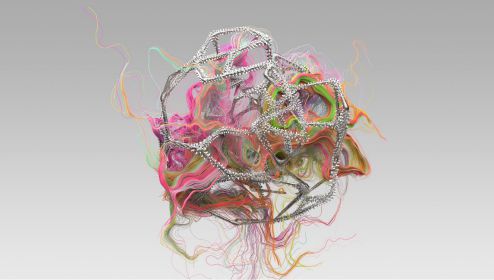
Paolo Cirio - Sociality
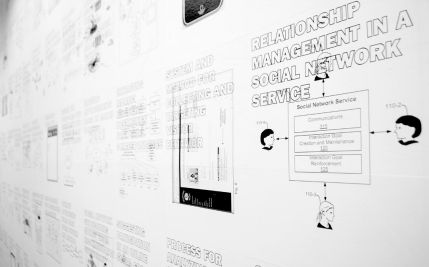
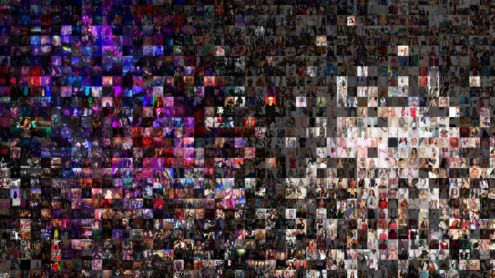
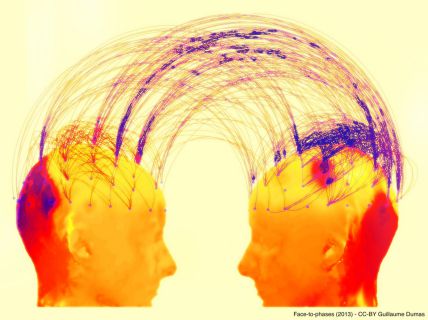
Moritz Stefaner - Multiplicity
Emma Charles - White Mountain
visuel: Margalit Berriet
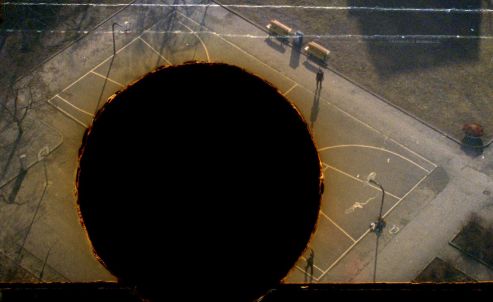

TO GO FURTHER
by Margalit Berriet
Brendan Dawes, Artist and designer, trough The Art Of Cybersecurity investigates how Data has become an asset for companies around the world, making it a target for pirating. The Art of Cybersecurity visualizes how threats and attempts at intrusion are detected, and how they are neutralized.
Paolo Cirio, artist, researcher and lecturer with his project Sociality was interested in Algorithms that collect, analyze, and control data and which have been the subject of patent filings. Sociality raises awareness about these mechanisms, which are loosely regulated by governing institutions but increasingly shape our lives.
Moritz Stefaner, data visualization artist, creates in Multiplicity ,out of the hundreds of thousands of images published every day on the Internet, a portrait of the city of Paris based on clusters of photographs that look similar.
Guillaume Dumas, a Research fellow of the Institut Pasteur and Associate Academic Member Company NameMila - Quebec Artificial Intelligence Institute - questions in Inter-individual Social Dynamics And Intra-individual Biological Grounding the metaphor comparing the human brain to a computer has long been popular within neuroscience, but how do different models of computationalism explain social interactions and culture?
Emma Charles through her project White Mountain she as a Artist and filmmaker point out that although data is often considered immaterial, it requires servers to store it. Exploring the architecture of a data centre, White Mountain is a reflection on digital and geological time that makes visible the infrastructure that allows data to exist.
On the Search for Terrestrial Intelligence Olivier Auber, dealing with Researcher in cognitive art and science.
The efficient management and mastering of Big Data seems to play a crucial role in the survival of our species, according to the hypotheses formed in this essay, when imagining the fate of five different extra-terrestrials civilizations.
Mémoire de l’Avenir - at the invitation of CIPSH and the World Logic Day with UNESCO-Most, propose to reflect, via the Humanities, Arts and Society [HAS] project and Magazine on Creativity as asset in logical thinking and cognitive development.
HAS is an initiative by UNESCO-Most, CIPSH, GCACS, and Mémoire de l'Avenir which also lead the project.
Humanities, Arts and Society demonstrate the impact of the arts in society, promoting global understanding and collaboration between creativity and logic. So, to establish a worldwide movement of artists and scholars, contributing to the debate within the humanities, regarding universal issues.
With creativity and imagination humans offer sense to accumulated facts, building knowledge.
Creativity and the arts are reflections of the mind and its functioning—observing, recognizing, and rationalizing, using resourcefulness with imagination to revolutionize, transform, propose, act, and advance, while forming philosophies, laws, ethics, aesthetics.
Creativity is the feature that favour access to knowledge and to the understanding of principles, connecting problems with emerging solutions, encouraging cross-world information and comprehension, enhance participation and collaboration beyond boundaries—on issues such as education, environmental consciousness, global ethics…
The Arts and culture are powerful mediators also in the constitution of social realities and of individual and singular mindsets.
One of the main issues that the Humanities, Arts and Society (HAS) project is to explore together the interdependent relationship between Sciences and Creativity.
MDA-HAS dedicated a whole issue of investigation between the culture of Big Data and the fundamental need for Creativity as the phenomena of Singularities.
Through this examination between Big Data and Singularities HAS is aiming to demonstrate how Creativity is a Basis for Re-thinking the Human Condition.
Creativity is fundamental to logic, to cognitive development as to all social transformation. Creativity is the basis for critical thinking and for learning: While Big Data sets reveal patterns, trends, and associations, especially relating to human behaviour and to the interactions between humans and the world.
Logic and Cognitive setting offer faculties, tools and opportunities to improve actions and decision-making, serving all fields of development, including government, education, communication, ecology, Hence, the Arts and Cultures reflect the ongoing research into the world’s wonders and of human nature, inventing languages, creating and transmitting culture.
The arts do not replace science and are not reducible to the concerns of the sciences, but they participate in the process of developing the creativity, the imagination of new futures, of diversity and of critical thinking.
Luiz Oosterbeek – Director of HAS Magazine
We share with you for this first World Logic Day, a selection of these first investigations by various contributors presented in the first issue of the HAS magazine "Big Data and Singularities". The journal proposes various scientific and theoretical reflections as well as analyses, artworks and creative practices.
We invite you to discover the entire first issue of the HAS journal free of charge and in three languages on our website humanitiesartsandsociety.org.
Enjoy reading!
Mémoire de l'Avenir - Humanities, Arts and Society take part in World Logic Day on January 14th 2021. The World Logic day is an initiative of UNESCO and the International Council for Philosophy and Human Sciences.
Message of UNESCO
The ability to think is one of the most defining features of humankind. In different cultures, the definition of humanity is associated with concepts such as consciousness, knowledge and reason. According to the classic western tradition, human beings are defined as “rational” or “logical animals”. Logic, as the investigation on the principles of reasoning, has been studied by many civilizations throughout history and, since its earliest formulations, logic has played an important role in the development of philosophy and the sciences.
Despite its undeniable relevance to the development of knowledge, sciences and technologies, there is little public awareness on the importance of logic. The proclamation of World Logic Day by UNESCO, in association with the International Council for Philosophy and Human Sciences (CIPSH), intends to bring the intellectual history, conceptual significance and practical implications of logic to the attention of interdisciplinary science communities and the broader public.
A dynamic and global annual celebration of World Logic Day aims at fostering international cooperation, promoting the development of logic, in both research and teaching, supporting the activities of associations, universities and other institutions involved with logic, and enhancing public understanding of logic and its implications for science, technology and innovation. Furthermore, the celebration of World Logic Day can also contribute to the promotion of a culture of peace, dialogue and mutual understanding, based on the advancement of education and science.
WORLD LOGIC DAY
January 14th
Together, let’s bring to life
a space dedicated to the arts, sharing, and inclusion
Public-interest organisation


Go Fund Me

Follow us on social media




English

Who we are